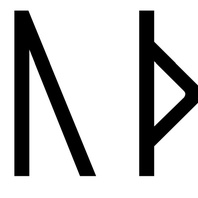
Viking Names
Gyda
Gyða appears early in Norway and is frequent there but it is not as common in Iceland. It appears in two Danish runic inscriptions and is common in other Danish sources. The name also appears in a few Swedish runic inscriptions and is found in later Swedish sources. Gyða is also attested in medieval documents from Lincolnshire and Domesday Book for Yorkshire. The name is a pet form of Gyríðr and it has been suggested that it was borrowed from England because several of the oldest carriers of the name appear to be of mixed Nordic and English origin.
Read More
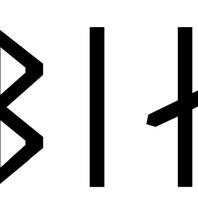
Viking Names
Asbjorn
Ásbjǫrn was a common name in Norway from the time of the settlement of Iceland (c. 870-930) onwards, and is common in Swedish and Danish runic inscriptions. Forms in Æs- are very common in Denmark and a few runic forms likely represent these spellings. Additionally there are numerous instances of the form Osbern found in Normandy which are possibly loans from England. It is a Old Norse compound name with the first element, Ás-, from Old Norse ás, óss ‘a god’, combined with bjǫrn, ‘bear’. It was common for Viking Age Scandinavian personal names to use animals as name-forming elements. Several place-names in Lincolnshire and Yorkshire may include the Low German male personal name Osbern, although the name is more likely to be an anglicised form of Old Norse Ásbjǫrn, as in Osbournby in Lincolnshire, and the name is also recorded in medieval documents from both Lincolnshire and Yorkshire.
Read More
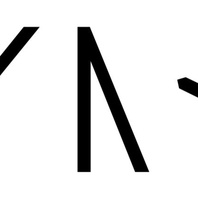
Viking Names
Asmund
Ásmundr is a very common name in Scandinavia throughout the Viking Age and later. It is recorded in medieval documents from both Lincolnshire and Yorkshire, in field-names in Lincolnshire, and in major names in North and West Yorkshire such as Osmotherley and Osmondthorpe. It is an Old Norse compound name. Its first element Ás- ‘a god’, frequent in Viking Age names, presumably refers to Old Norse deities such as Odin and Thor, though the latter name appears in its own right in many names, both male and female, while Odin is a very rare element in personal names. The second element-mundr is either Old West Norse ‘protector’ or Old Norse-Icelandic ‘gift’.
Read More

Viking Names
Thorarna
Þórarna is a Old Norse compound name with the first element Þór-, from the name of the god Þórr ‘Thor’ (very common in both male and female names), combined with -arna, the feminine form of -arinn, either from arinn ‘hearth’ or more probably the postulated element *arin related to ǫrn ‘eagle’. A couple of instances of Þórarna are recorded in Norway with one of the earliest being from the ninth century. The name is frequent in Iceland evidenced by the multiple mentions in Landnámabók ‘The Book of Settlements’, a quasi-historical text which recounts the settlement of Iceland. Þórarna is not attested in Denmark or Sweden. There is a form of the name found in the Yorkshire Domesday, but it may alternatively represent the male name Þórormr.
Read More
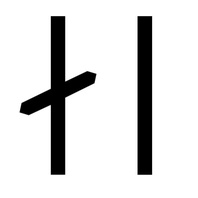
Viking Names
Eileif
The Old Norse male personal name Eiláfr/Eileifr is not always to be distinguished from another Old Norse male personal name Eilífr. This is evident in the place-name Elston, Nottinghamshire where the first element is either Eiláfr or perhaps Eilífr. Eiláfr/Eileifr is an Old Norse compound name with the first element being either Ei- ‘always’ or Ein- ‘one, alone, single’ combined with the second element -leifr/-láfr ‘inheritance’ which when used in a personal name likely has the sense of ‘son’. This name was frequently used throughout medieval Scandinavia and is attested in Danish place-names and runic inscription, Swedish runic inscriptions, and became common in Norway after 1270. The name occurs in Domesday Book, and later medieval documents, for both Lincolnshire and Yorkshire.
Read More
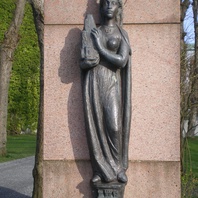
Viking Names
Sunnifa
Sunnifa is a Scandinavianised form of Old English Sunngifu, which was the name of an Irish Christian queen who fled to Norway in the tenth century, according to her legend. She was later venerated as a saint and is the patron saint of Bergen and Western Norway. The name appears in Norway from the eleventh century onwards, but it is rare in Iceland and Denmark. Sunnifa is well-attested in medieval English documents notably in Lincolnshire and Yorkshire, as well as some field-names in West Yorkshire.
Read More

Viking Names
Thorwif
Þorwīf is a postulated Anglo-Scandinavian hybrid name formed from the Old Norse element Þor– from the god Þórr ‘Thor‘ combined with the Old English element wīf ‘woman, wife’. Forms of Þorwīf are attested in medieval Yorkshire charters.
